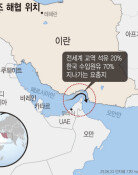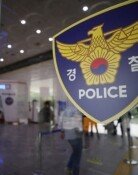60th Anniversary of the Death of Poet Yoon Dong-ju
60th Anniversary of the Death of Poet Yoon Dong-ju
Posted February. 14, 2005 22:35,
February 16 is the 60th anniversary of the death of poet Yoon Dong-ju, who died in a jail, just six months ahead of Koreas independence from Japan.
Fukuoka Prison of Kyushu, Japan, where Yoon finished his 27 years and two months of life, is now a detention house where prisoners under trial are locked up. Many areas of the site have changed to a park and citizen hall.
On the afternoon of February 13, about 40 Koreans and Japanese gathered and held a memorial service for his death at a small park just outside of the old prison.
It was the 10th time that the memorial service, which is led by The Assembly of Those Who Read Yoons Poetry made up of the citizens of Fukuoka, has been held. The members of the assembly, with all different types of occupations, including teacher, housewife, doctor, and office worker, have held the memorial service on the last Sunday before the anniversary of Yoons death every year.
Horita Hiroji (67) said, By doing things like the Self-Defense Forces dispatch, Peace Constitution revision, and patriotic sentiment education, Japan is again preparing to force its people to battlefields. The dead poet always comes up to my mind whenever I think of the things I must do in this kind of era.
The assembly was established in the December of 1995. Professor Nishioka Kenji (60) of Fukuoka University, who was born near Fukuoka Prison, established the assembly in penitence that he had not even known that the poet died in his home town after seeing a monument inscribed with Yoons poem at Yonsei University.
The members have met about 100 times, almost every month for 10 years. The second bulletin, which is a report of their discussions after reading a poem, was presented this year.
The memorial service took place for about an hour and the service ended by singing Send Me Home together. It was a song that Yoon used to sing a lot, missing his home town and family.
After the memorial service, the members of the assembly moved to the citizen hall, listened to a lecture given by Song Woo-hye, the author of Critical Biography of Yoon Dong-ju, and held a discussion.
The injection that was forced into the dead poet probably was a physiological saline solution which was experimentally used as substitute for blood plasma by the notorious Unit 731. In those days, since the doctors of the medical department of the Kyushu Imperial University had participated in the experiment, its very possible that Koreans who were imprisoned in Kyushu for participation in the independence movement were the objects of physical experiments.
The hall became quiet when Dr. Dakeda Masakatsu, who joined the assembly few years ago, said this. Editorial writer Ide Onsaku of the Nishinippon newspaper said, For the relationship between Korea and Japan to become much more close, it is essential to fill the gap between the two nations differences in views of history. By looking back at Yoons life and death, it might be possible to find the proper future of both nations.
Hun-Joo Cho hanscho@donga.com






![[단독]“두건 쓴 무장경비대 길목마다 검문…택시로 20시간 달려 탈출”](https://dimg.donga.com/c/138/175/90/1/wps/NEWS/IMAGE/2026/03/05/133470282.1.jpg)
